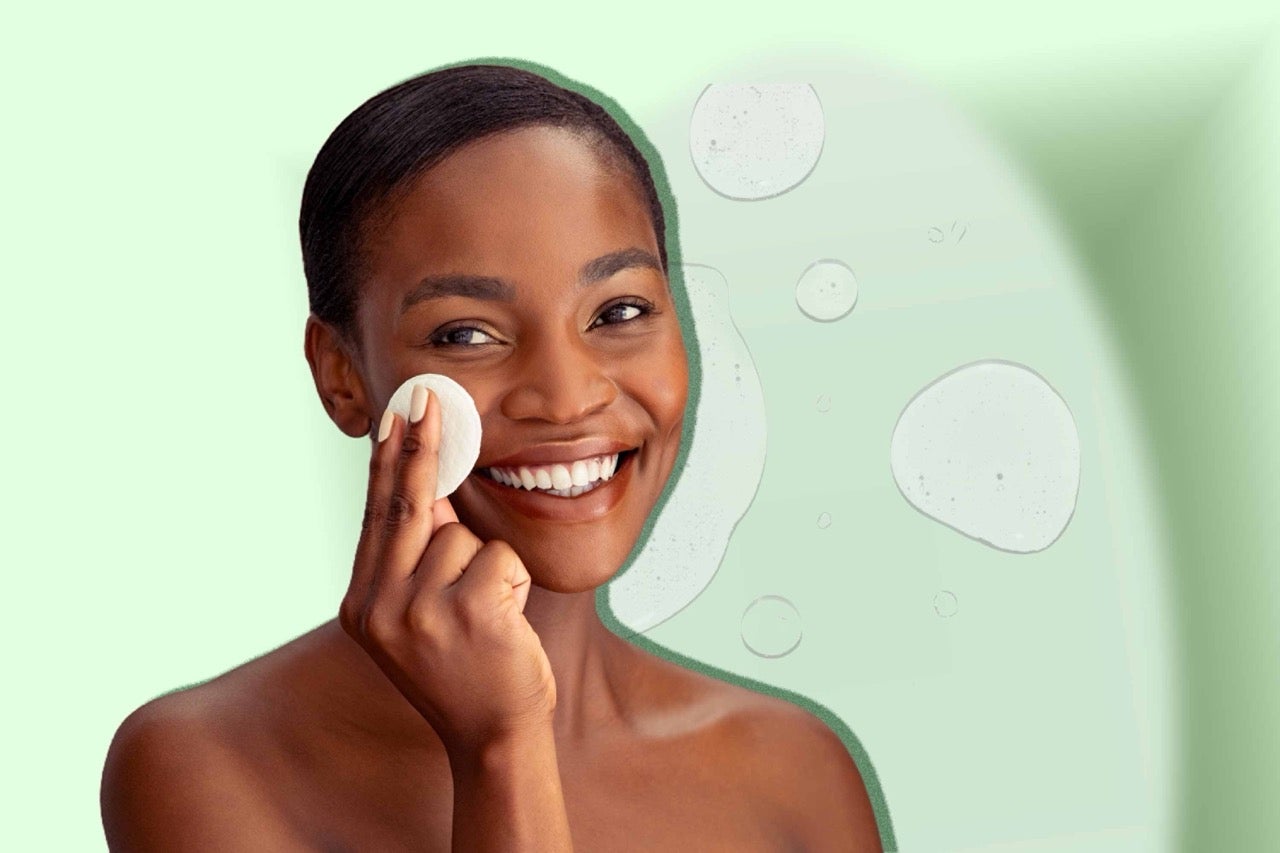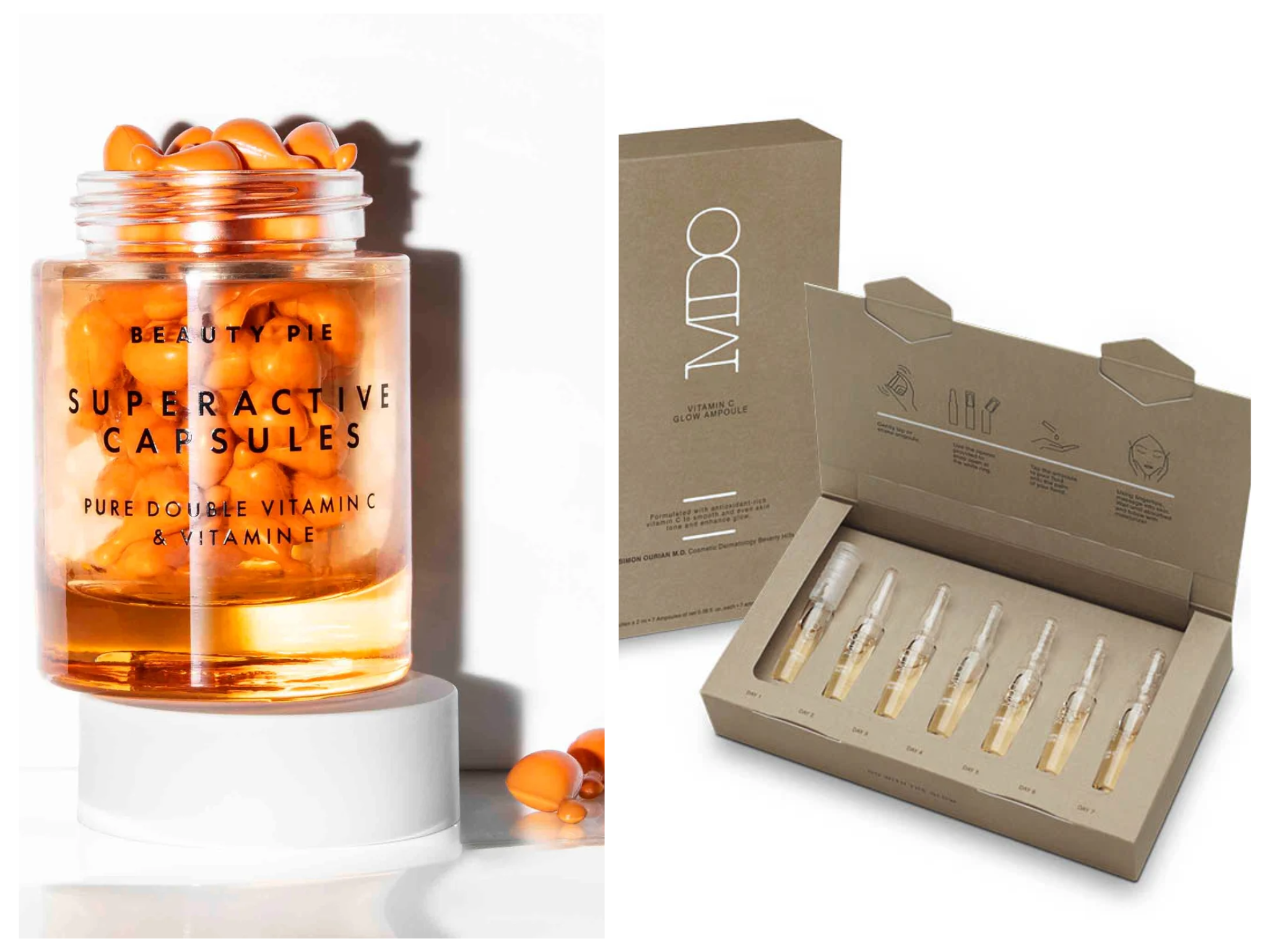The Independent's journalism is supported by our readers. When you purchase through links on our site, we may earn commission. Why trust us?
Everything you need to know about salicylic acid, according to the experts
What does the skincare ingredient do and is it good for acne? All your questions answered

Your support helps us to tell the story
From reproductive rights to climate change to Big Tech, The Independent is on the ground when the story is developing. Whether it's investigating the financials of Elon Musk's pro-Trump PAC or producing our latest documentary, 'The A Word', which shines a light on the American women fighting for reproductive rights, we know how important it is to parse out the facts from the messaging.
At such a critical moment in US history, we need reporters on the ground. Your donation allows us to keep sending journalists to speak to both sides of the story.
The Independent is trusted by Americans across the entire political spectrum. And unlike many other quality news outlets, we choose not to lock Americans out of our reporting and analysis with paywalls. We believe quality journalism should be available to everyone, paid for by those who can afford it.
Your support makes all the difference.Salicylic acid may sound like skincare jargon, along with your hyaluronic acids, retinol and collagen supplements, but the ingredient isn’t just a marketing ploy and many dermatologists actually cite it as the key to unclogging pores.
Nowadays, you’ll find salicylic acid in a whole host of products, including shampoos and cleansers, but we remember its 2012 serum and toner boom – thank you, Caroline Hirons.
The question is: what is salicylic acid? And to that, we might add, is it worth parting with your hard-earned cash to slot it into your skincare routine? We wanted a concrete answer, so we spoke to the experts to get all the intel, facts and best products to buy.
If you’re a fan of French pharmaceutical skincare, then you’ll likely have dabbled with Bioderma. Renowned for its affordable sensibio micellar water (£13, Lookfantastic.com) and loved by us for its oily skin-approved hydrabio gel crème (£18, Lookfantastic.com), Bioderma is champion of fuss-free, pared back beauty. Thus, it seemed only appropriate to pick the brains of the brand’s consultant dermatologist, Dr Bernard Ho.
For a balanced collection of aesthetician intel, we also spoke to Dr Ahmed El Muntasar, the founder of The Aesthetics Doctor clinic in the UK, and behind the treatments of TikTok sensation Olivia Neil and Love Island’s Amy Day. Our final expert? Simon Ourian M.D. who, if you have a keen eye, you might have spotted on the early seasons of Keeping Up with the Kardashians. Here’s what they had to say.
Read more: Everything you need to know about hyaluronic acid
What is salicylic acid?
“It is an oil-soluble BHA (beta hydroxy acid),” begins Dr. Ourian. It “deeply exfoliates the skin by penetrating the pores to unclog them, it’s also a great ingredient for oil control and targeting problem skin”. Dr Ahmed adds that SA is usually derived from aspirin, which, we can deduce, contributes to its anti-inflammatory properties.
What does salicylic acid do?
In skincare, Dr Ourian explains salicylic acid is “a wonderful ingredient to break down the ‘glue’ that holds skin cells together at a deeper level, helping you reveal a brighter, rejuvenated complexion but also targeting acne, blackheads, and whiteheads”.
He adds: “In short, it penetrates the skin debris that clogs pores, breaks down skin cells and promotes deep exfoliation – something an AHA can’t do as it only tackles the surface layer.”
By contrast, AHAs or alpha hydroxy acids are water-soluble acids, which simply means they exfoliate on the surface of the skin to varying degrees.
Is salicylic acid good for acne?
In terms of acne, it “works as an anti-inflammatory and anti-bacterial (breakouts are due to a compromised skin barrier), it helps angry, red, sore, and inflamed spots, papules and pustules diminish and it can help with excessive oiliness of the skin (which can also cause breakouts)”, explains Dr Ourian. “Generally, it may take six to eight weeks to see significant improvement in acne,” adds Dr Ho.
Is salicylic acid safe?
Dr Ourian it “absolutely” is, adding that you can use salicylic acid every day. He does, however, advise introducing the ingredient slowly, explaining that when overused, it can “make dry skin dryer and if you are sensitive to the ingredient, it will irritate your skin”. For caution, he suggests discontinuing use if experiencing any irritation and following up with your dermatologist or doctor.
Another thing to note? “It is not suitable for people who are pregnant or have very dry skin,” says Dr Ahmed.
How can I use salicylic acid at home?
“A lot of people find [salicylic acid] strong when they first start using it,” explains Dr Ahmed. “Using it at nighttime is very important and then building up tolerance slowly. Begin using it three nights a week then slowly increase it. It can be used up to twice a day.”
Echoing Dr Ahmed’s caution, Dr Ho stresses: “Avoid introducing too many products at the same time, as you might not know what is actually helping or worsening your skin.”
In short: ease yourself in and don’t time your SA introduction with another new retinol, niacinamide or the like.
Can you use salicylic acid with vitamin C?
You can partner salicylic acid with vitamin C. “Both are very effective ingredients singularly but when you combine them, they can do wonders for the skin,” says Dr Ourian. “They help to slow down the skin’s ageing progress, brighten skin, reduce blemishes and breakouts – they are a powerhouse together.” Just don’t begin this power pairing at the same time as your inaugural salicylic acid usage.

While D. Ourian recommends his brand’s MD brightening booster (£85, Mdo-skin.com), it is a little hard to get hold of in the UK but, in its absence, our beauty writer Lucy Smith recommends the Beauty Pie superactive capsules (£16, Beautypie.com).
Looking for more recommendations? Check out our guide to the best vitamin C serums